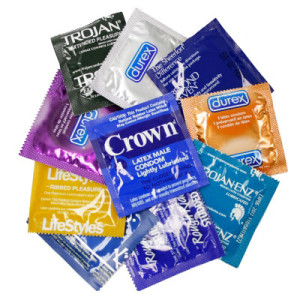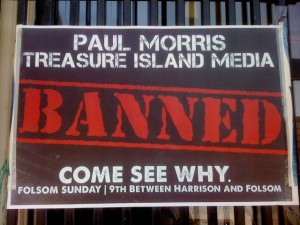NOTE FROM MARC DYLAN: This blog is written by GUEST BLOGGER “Joe the Lawyer”, a friend of mine and a legal expert who brings his unique perspective to this issue:
Should Condoms be Mandatory in Porn?
UPDATE: About a week after this post was originally published, the California State Senate “shelved” this proposed legislation, effectively killing the attempts to make condoms mandatory, for now. Nevertheless, the proponents behind those calls for mandatory condoms may continue the battle in future years, and this guest blog discusses some of the issues surrounding this matter.
Go to the COMMENTS section and POLL near the bottom and provide YOUR TAKE on this issue! The ideas expressed here are purely his own and I welcome your reply at the bottom of the page. If YOU want to be a guest blogger to offer YOUR perspective on topics of the day, please click here to find out how. — Marc
A Welcome Intrusion?
by JOE THE LAWYER On May 27, 2014, the California Assembly passed Assembly Bill 1576, colloquially referred to as the condoms in porn law. The Bill is presently making its way through the California Senate where, on June 25, 2014, the Senate Labor and Industrial Relations Committee voted to pass the bill three to one to one (3-1-1). [ EDITOR’S NOTE: THIS BILL WAS SUSPENDED AND SHELVED BY THE CALIFORNIA SENATE ON AUGUST 14, 2014 AND IS EFFECTIVELY DEAD FOR NOW. ]
It is the content of the bill, not its legislative path to law though that has ignited a debate about the implications as well as unintended consequences of passing such a law.
This article is concerned with evaluating some of those arguments, particularly the constitutional and economic challenges opponents have raised to the law.
To begin, I believe that it is important to understand what Assembly Bill 1576 mandates as it is presently proposed. Indeed, in my research, I have found much of the opposition to the bill seems to stem from some misinterpretations, if not misunderstandings about what the law requires of employers and employees (which includes independent contractors of which most, if not all adult film performers are).
I do not mean to suggest that those who oppose the bill have not raised legitimate arguments concerning its impact on the industry, but proceeding from a set of undisputed facts does allow us to evaluate this matter with the clarity that it deserves.
Accordingly, AB 1576 sets forth the following mandates:
1. The Bill is exclusively applicable to those engaged in the commercial production of pornography – owners, employers, employees, and independent contractors (classified as employees in the bill). 
2. An employer must maintain engineering and work practice controls sufficient to protect employees from exposure from blood and other potentially infectious materials (OPIM). Those work practice controls include but are not limited to:
a. Simulating sex acts or using production and postproduction techniques, like editing a condom out of a scene;
b. Requiring all performers to use condoms and other protective barriers while performing, and providing those performers with condom safe water and or silicone based lubricants that aid in the use of condoms;
c. The use of plastic or disposable materials when cleaning up sets; and
d. Using Sharps containers for disposing of contaminated sharps.
3. An employer must provide, at its expense, the Hepatitis B vaccination for all employees and performers when they are engaged in the production of the film.
4. An employer must pay the costs of required medical monitoring, such as STD/STI/HIV testing, and keep confidential employee records.
5. The Bill requires that all employers either create or maintain an exposure control plan that includes:
a. information that each time an employee performing in an adult film engaged in vaginal or anal intercourse, personal protective equipment was used to protect the employee from exposure to blood borne pathogens;
b. and each employee performing in an adult film was tested for sexually transmitted infections according to specified recommendations not more than 14 days prior to filming any scene in which the employee engaged in vaginal or anal intercourse;
c. and that the employee consented to disclosing to the Department of Industrial Relations Division of Occupational Safety and Health that the employee was the subject of an HIV test, and that the employer paid for the test; Notice that this merely requires a certification that the performer took an HIV examination and that the employer paid for that test.
It does not require disclosure of those test results. and
d. and an adult film employer’s exposure control must include any additional information as required by the Division of Occupational Safety and Health.
6. Violation of this law would constitute a criminal offense which carries a prescribed penalty.
Frankly, AB 1576 is a remarkable display of legislative brevity in that it accomplishes so much within in forty-one (41) lines.
What is astounding though is the amount of controversy those forty-one (41) lines have generated.
At first blush, there does not appear to be anything in this bill that would hint at something dire as its opponents predict; to the contrary, it appears as if what the bill is calling for is rather common sense, if not pleasingly banal. AB 1576 is sterile, relatively succinct and straightforward as all legislation should be, yet there is controversy.
It would be cynical of me to suggest that this is at its core a debate about profits with just enough handwringing about privacy, personal choice and wanton government intrusion to make it seem as if it is more about the latter than the former.
I choose to believe, however, that there is something more afoot – legitimate, honest dissent on an issue worth discussing.
In that spirit, let’s talk.
Vivid Entertainment and adult performers Kayden Kross and Logan Pierce filed a lawsuit challenging the constitutionality of the ballot forerunner to AB 1576, Measure B. I am not sure if they have continued their challenge, but it is clear that likeminded studio owners and performers are challenging AB 1576 using the same arguments.
Opponents of AB 1576 maintain that the bill is unconstitutional as it restricts First Amendment Freedom of Expression. Further, they assert that the bill burdens their economic liberties which they claim, as an unintentional but attenuated consequence, will hurt California’s economy.
To be sure, these are serious claims, but I am not quite convinced that they are sufficiently compelling. Federal, state, and local governments are vested with what are referred to as police powers. This enables governments to take actions that are deemed necessary to protect and preserve the safety, health, and welfare of the public at large.
Passing work place safety regulations like AB 1576 are seen as a natural extension of that authority in much the same way that governments mandate all coal miners wear hardhats or all cooks wear hairnets and rubber gloves while preparing food. Just as wearing a hardhat and hairnets are meant to protect the worker and/or the people that they serve, mandatory condom usage is proposed as a protection for performers and their co-workers.
No one would deny that ensuring that performers are working in a safe environment where the risk of infection, no matter how low is none the less probable, is a laudable goal.
The question raised by the opponents however, is whether this act of so called legislative paternalism violates an owner’s and or performer’s First (1st) Amendment rights and threatens their economic livelihood.  The opponents of AB 1576 do not assert that the entire bill infringes on their right of free expression, just the portion of the bill that requires male performers to wear condoms while engaged in the production of the film.
The opponents of AB 1576 do not assert that the entire bill infringes on their right of free expression, just the portion of the bill that requires male performers to wear condoms while engaged in the production of the film.
This may seem like a nonsense argument upon hearing it, and I must admit that the logic of it escaped me initially, but upon further consideration it does track.
In fact, the argument was made in a 2013 case that the United States Supreme Court declined to review. The case involved a strip club in upper state New York where the owner believed that admissions fees and other such revenue was exempt from sales tax because the strippers were engaged in producing live art.
The state of New York obviously disagreed and the strip club owner sued. The strip club owner as you might have guessed lost and because the United States Supreme Court declined to review the case the ruling of the lower court stands.
The question in that case, as it is raised in this instance, is whether what that performer was doing on the pole was communicating something artistic thereby triggering the full protections of the First Amendment.
The inquiry may not seem relevant to some, but it is real and it is important. When the framers of the constitution drafted the first amendment they were not looking to protect all speech, actually, the drafters were very, shall we say deliberate about their intentions. They believed that the only forms of speech that should be protected were those statements that advanced civil society and earnest political discourse. In other words, in order to receive the full protection of the first amendment your statements have to be substantively meaningful and worthwhile to the community.
For that reason the courts have drawn a distinction between high value speech – pure speech (I think that society would function better if we globally adhered to free market principles), political speech (A vote for Hillary Clinton is a vote for reproductive freedom) and low value speech like obscenity (the constitutional category for pornography).
Pornography has consistently been ruled by all of the Courts of this land as low value speech and it seems as if it will remain as such, however, ask the owner of Treasure Island Media for instance what his condom less performers are communicating when they perform in a scene and he will tell you that the message is every bit as important as any that receives the full protection of the First Amendment.
Far be it from me to share what that message is with any great degree of certainty, but in my research it appears that he is making an argument that feminist like Camille Paglia1 have made about women sex workers, particularly strippers – it is a performance of liberation and defiance.
Condom less sex in porn, in Treasure Island Media’s understanding, is about liberation and authenticity, sex the way God intended it (however ironic or irreverent it may be to evoke God in a discussion about pornography, Camille Paglia, and Treasure Island Media).  Further, considering that Treasure Island Media content often deals in the grossly prurient and taboo as a way of challenging our thankfully cautious views about sex in the age of HIV, it is not at all difficult to make the leap that what you are seeing depicted in a Treasure Island Media video is communicating a substantively meaningful message about our near paralyzing fear of HIV.
Further, considering that Treasure Island Media content often deals in the grossly prurient and taboo as a way of challenging our thankfully cautious views about sex in the age of HIV, it is not at all difficult to make the leap that what you are seeing depicted in a Treasure Island Media video is communicating a substantively meaningful message about our near paralyzing fear of HIV.
If it is a manageable disease then why should the public so fear it as to not consider condom less intimacy with some who is HIV positive. Of course the answer is because manageable or not no one wants to be ill, but that retort would miss the point. One can disagree with Treasure Island Media’s message while still believing that it is very important one.
Stripping is “a sacred dance of pagan origins” and the money men stuff into G-strings is a “ritual offering.” “The more a woman takes off her clothes, the more power she has” and feminists hate strippers because “modern professional women cannot stand the thought that their hard won achievements can be outweighed in an instant by a young hussy flashing a little tits and ass.” – Camille Paglia
Treasure Island Media has made an “art” out of challenging convention for profit and making a political/social statement at the same time. Forcing its performers to wear condoms, Treasure Island Media would claim, undermines its ability to make those allegedly transgressive performance based statements.
Further, let us say that a studio wants to produce a Caligula parody. The Emperor was not known to wear condoms (though anthropologist and historians reveal they did exist at the time) and so for the sake of authenticity this studio chooses not to make its Caligula wear one. That could arguably make the condom law essentially a content based regulation of speech.
The government, albeit inadvertently, would be deciding what type of content or “statements” the studio could produce. That most certainly would present quite the problem constitutionally.
So who is right?
The State of California is well within its authority to regulate work place environments, but producers and performers have a right under the first amendment to express themselves. In this instance I believe that the Courts would side with the state of California.
Even if we were to agree that condom less pornography does communicate a political or social message in its performance, the right to express that position is not absolute.
It is always subject to limitations provided that the State can prove that they have a compelling reason for imposing such a limitation and they can show that AB 1576 is the least restrictive means possible of meeting that compelling interest. The state would win on both counts.
There are few state ambitions, in terms of public health, more compelling than preventing the spread of HIV and STI/STDs, and to date there is no more effective way (or least restrictive means) of combating both, prophylactically, than using condoms. I repeat, there is no more effective means of combating both, prophylactically, than using condoms.
Despite its benefit to social and political discourse, whatever that stripper on the pole is saying with her body, or that Treasure Island Media performer is saying by not wearing a condom, it is all subject to government restriction in furtherance of what can arguably be seen as a noble public health goal. This of course all presumes that a judge or jury would find that not wearing a condom does communicate something meaningful.
If they do not (and I suspect they will not, though in California you can never be quite sure) then it is considered rank obscenity and it does not receive any First Amendment protections. The state of California cannot ban the production and sale of pornography, and it is not attempting to do that with this legislation, but it can regulate it.
Most of the challenges to AB 1576 revolve around economic concerns, specifically that this new regulation would cause the adult film industry to either leave California or “go underground”. I find both of these claims to be somewhat dubious for different reasons.
The claim that the adult film industry will simply move to another state is not a fanciful one, indeed permits to film in LA are down by 95% percent and several outfits have already moved their base of operations out of California. I question though whether this is due to AB 1576, at least alone.
California is not an easy state in which to live or do business. The cost of doing business in LA, not to mention San Francisco is abominable, and each year it appears that Sacramento finds yet another reason to raise taxes or exact fees. This increased cost of doing business in California year over year coupled with a weak economy means that producers are forced to find states that are relatively regulation free and therefore offer a better opportunity to make a profit.
Regulation can rightly be viewed as a form of tax if it requires a business to expend money to comply with the law.  In that regard, AB 1576 represents a tipping point for the industry; an added cost that they refuse to pay. I can say that as a small business owner I empathize with that concern. Paying for tests, medication, and making performers wear condoms is not the lone reason why porn companies have and might leave California, it is all of the costs of working in this business in the aggregate that I believe is precipitating the mass emigration.
In that regard, AB 1576 represents a tipping point for the industry; an added cost that they refuse to pay. I can say that as a small business owner I empathize with that concern. Paying for tests, medication, and making performers wear condoms is not the lone reason why porn companies have and might leave California, it is all of the costs of working in this business in the aggregate that I believe is precipitating the mass emigration.
The impact to California’s economy has never been precisely or empirically established, however, it is reasonable to presume that the loss would be comparatively substantial. Particularly if one considers the number of other sectors that would be affected by the loss of pornography dollars; this loss of revenue could have a sizable impact on an already beleaguered Californian economy. Again, I empathize with the sentiment of this argument, but it is truly a policy consideration and not a legal issue per se. I am not concerned however about the industry going to ground if this law passes.
Unlike drugs or other illicit products that more than thrive in the black market, pornography, much like mainstream films, depends mightily on advertising, which necessitates a certain degree of public visibility. Going to ground while trying to make a profit will be somewhat difficult considering the need to openly market the product.
Furthermore, an underground industry would be more susceptible to piracy than it is now. Every company has experienced the pain of profit loss due to online sharing networks that facilitate the theft of their work. Only work that is legitimately produced receives the full copyright protections of the US government enabling producers to demand that illegally posted clips of their work be taken down under threat of punishment or suit.
If a work is performed underground those protections may very well not exist and the company would not have any legal recourse to protect its work. There are more reasons why going to ground would not be advantageous but these are just a few. In short, AB 1576 may not be an ideal regulation to opponents, but it is not egregious. I am sure though that opponents would say that too misses the point.  I do however understand the angst that many in the adult film industry feel concerning this bill. There is a rather protracted and well documented history of governments at various levels passing near draconian laws dealing with pornography that the benefit of hindsight has proven were on the whole more destructive to performers than beneficial.
I do however understand the angst that many in the adult film industry feel concerning this bill. There is a rather protracted and well documented history of governments at various levels passing near draconian laws dealing with pornography that the benefit of hindsight has proven were on the whole more destructive to performers than beneficial.
This angst becomes even more understandable and palpable when one considers that many of these regulations were promulgated pursuant to choke point operations. Choke points refer to the military maneuver of forcing an enemy to a point where it cannot fight effectively because its geographical surroundings will not permit it.
It is no secret that when the government seeks to eradicate or at least weaken what it sees as an “undesirable” industry they will use regulation to do so. Moral outrage is often the true motivation but it is just as often deftly disguised as a concern for public health and safety.
Throughout our nation’s history, choke points have been used to target big tobacco, gun manufacturers and sellers, big candy, and of course, the adult film industry. Though many of those choke point operations proved fruitless in the long run, many in the industry well remember their effects and the impact it had on them socially, not to mention economically.
It is the long memory of these past clashes with the government that seems to guide the bigger voices in the opposition, yet, the issue of AB 1576 is not where I would suggest they stake out their next legitimate claim of grievance. This bill is constitutionally sound and more importantly a boon to performer’s safety and welfare.
A brief word on personal liberty. Some in this debate maintain that they have a right to decide for themselves, along with their scene partners, whether they should wear condoms during their performances. On balance, I would tend to agree with that argument. I believe as a matter of principle that the commercial nature of the activity should have no bearing on what two consenting adults choose to engage in by way of informed, mutual agreement. That however is not the Country, or world for that matter, in which we live.
The reality is that the government has staked out a role as director of private health in this country and expect for that role to grow, not shrink, in years to come. The Courts have granted the state wide latitude when it comes to matters of public health, and personal liberties like the ones the opponents of the bill are seeking are honestly already relics.
I have come to learn in my research that even before AB 1576 the overwhelming number of gay adult film studios (on the whole) practiced an all of the above approach to performer safety – mandatory condom usage, strict testing with disclosure, and sero-sorting. Though some have moved away from this practice, it proved to be a very effective strategy as there were no reported cases of HIV/STI/STD transmissions on set in the past ten years. All that those same companies would need to do is to return to that same regime to be compliant. This bit of history also proves, at least to me, that AB 1576 is not about moralism run amok.
The bill merely reflects practices that were used and promoted by these same companies not more than a few years ago. If we presume that these companies instituted these practices to ensure performer safety (and that in and of itself presumes a certain degree of moral agency), why then is it acceptable to cast aspersions on law makers who are mandating the same thing?
Even if they are attempting by some degree to legislate morality how would that be any different in essence than the duty that most gay adult film companies voluntarily and willingly engaged pre-AB 1576?
Complicating matters further for those who make this argument is the fact that AB 1576 is a workplace regulation that is mandated for all individuals who work in any area of employment that necessitates the handling of potentially infection materials.  Why are such mandates for these employers and employees regarded as a reasonable expression of state police powers necessary to protect employees and the public, but derided as nothing more than misguided censure when applied to the adult film industry? I grant that when the government involves itself in bedroom affairs it can often get it wrong, but this is a bill that mirrors the actions and presumed ethical positions of some of the very companies it seeks to regulate.
Why are such mandates for these employers and employees regarded as a reasonable expression of state police powers necessary to protect employees and the public, but derided as nothing more than misguided censure when applied to the adult film industry? I grant that when the government involves itself in bedroom affairs it can often get it wrong, but this is a bill that mirrors the actions and presumed ethical positions of some of the very companies it seeks to regulate.
I can be convinced that there is a moral dimension to this bill, but not that it is borne of a surreptitious intent. Overall, despite claims to the contrary, I remain unconvinced that the demand for condom less pornography has widen profit margins so much that noncompliance with the law would be preferable.
I could be wrong, but I remain skeptical.
It seems to me that there would be full support for a bill of this type in a community where the sheer frequency of sex puts performers at a greater risk of contracting a disease than the average Californian. I am very impressed to see that the industry, before the passage of AB 1576, required astringent testing with disclosure, and that a number of outfits serosorted in their partner pairings, but clearly the cases of straight side, on-set contracted STI/STD’s in the past five years requires an all of the above approach that will further reduce the risk of infection.
Under AB 1576 workers are receiving the greatest degree of on-set protections that can be reasonably afforded them. The regulatory mandates are relatively minimal, although it is conceded it will be an added cost to a company and by extension the consumer.
I well understand the free expression argument being made but I do not find it legally compelling and I suspect a Judge would come to the same conclusion. I am also not convinced of the economic arguments being made, at least not the claim that companies will move exclusively because of AB 1576. If they move, it will be because of the law as well as other reasons, the latter I suspect being higher in priority.
Whatever the decision, AB 1576 is a legitimate expression of the States police powers, one where I believe that the state, acting paternalistically, has actually proven to be a good parent – surprisingly.
From Marc Dylan: LET ME KNOW WHAT YOU THINK ABOUT THIS GUEST BLOGGER POST!
ANSWER THE POLL BELOW, THEN SCROLL DOWN TO LEAVE US YOUR COMMENT ON THIS TOPIC
[yop_poll id=”2″]
SCROLL DOWN TO LEAVE ME YOUR REPLY TO THIS POST








 >
>




Eric says
The attorney makes some really interesting points here. I think that ultimately the decision about barebacking should be made by the adult performers who are asked to do it….it is THEIR health at stake and they can make an informed decision. But I do see the other side of the argument…I mean the state can require hardhats on a construction site, baby seats in cars, nurses to wear protective gloves when near blood…so there is an argument that state has an interest in protecting its citizens. I still think the freedom of choice of the PERFORMER should trump that.
Tom says
I still have a hard time accepting that in the 21st century, we are still dealing with the “safe-sex” versus “bareback sex” issue. I have lived and experienced life on both sides of what this above regulation is intended to prevent; the spread of HIV/STD’s/STI’s. To overly simplify my personal view about all of this, I can only state what is, to me, very obvious. Pornography is a way of visually depicting human sexual fantasies. The great power humans possess, is the ability to fantasize, yet not necessarily carry out, what they view in porn. It is an individual’s right to decide what to put on their reproductive anatomy, and what to leave off of it! The government has no business sticking its nose inside a place as sacred as our bedroom. It is up to any given individual to protect him/her self from exposure to possible disease or infection, not the government. That comes from a man who is still HIV/STD – free, even after having 3 HIV+ partners…the 1st lasting 11 years! I never used condoms, though i will never advise anyone to do as I have. If you want to judge people for what they do or do not do sexually, your time and energy would be better spent on a local charity…not sex regulation!
frankie says
Now with the advent of Truvada…every sexually active adult should be responsible in managing their own health…There should always be the assumption that your potential partner could be positive..It is up to you to use a condom..be taking Truvada..every studio can decide how they want to film their performers and each actor has the choice to work for whatever studio…the market will decide which studios stay in business..Yes I enjoy studios that show bareback and studios that have their actors using condoms….Truvada is a very welcoming and life-saving step for our community… and every sexually active person…